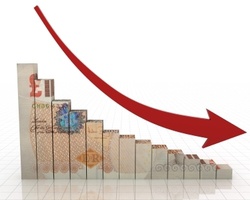 File photo
File photo
Inflation is expected to slow down further leading to a further cut in the monetary policy rate-the rate at which commercial banks borrow from the Bank of Ghana, Ecobank Research has predicted.
“We see prospects for a further slowdown in inflation as supportive of further policy rate cuts to boost non-oil GDP growth”, it stated in its latest review of the Monetary Policy Report which announced a further one percentage point reduction in the policy rate. In justifying its decision to ease the policy rate, after a pause in September 2017, the Bank of Ghana cited the resumption in the deceleration in headline inflation, which slowed to 11.6 percent year-on-year in October 2017.
However, the research noted that the deceleration in inflation stemmed from base effects as monthly inflation expanded 0.9 percent - its quickest pace in six months due to a 1.4 percent month-on-month rise in non-food inflation on account of higher transport costs. Furthermore, while noting that Ghana recorded strong GDP growth of 9.0 percent year-on-year in quarter two 2017 on account of higher oil production, the BoG cited the slack pace of non-oil GDP growth rate at 4.0 percent over the same period as a cause for concern.
The report reiterated that “amid the slowdown in headline inflation, we believe this reflects a shift in BoG focus towards boosting non-oil GDP growth in the light of flagging expansion in credit growth.”
The report added that primary market yields are likely to resume falling, after having stagnated since climbing during quarter three; 91-day T-bill yields are up 1.4 percent since end-quarter two, yet remain 4.17 percent lower than at end-quarter one. Yields are also expected to continue to be influenced by the government’s borrowing requirement, the BoG’s policy stance and liquidity management efforts, and FX developments.
The report also emphasized that that though fiscal borrowings are set to rise in 2018, an increased fiscal focus on issuance of long dated Ghana cedis debt and announcement of US$ one billion Eurobond issuance in the 2018 budget underpin prospects of downward pressure on the Ghana cedi yield curve in 2018.
Notably, the easing stance comes despite recent pressures on the Ghana cedi at the interbank due to seasonal demand ahead of the festive season. Meanwhile, positive developments in the external sector in 2017, despite a slump in cocoa prices, have helped to broadly stabilize the cedi , supported as higher production across gold, cocoa and oil and improved export receipts